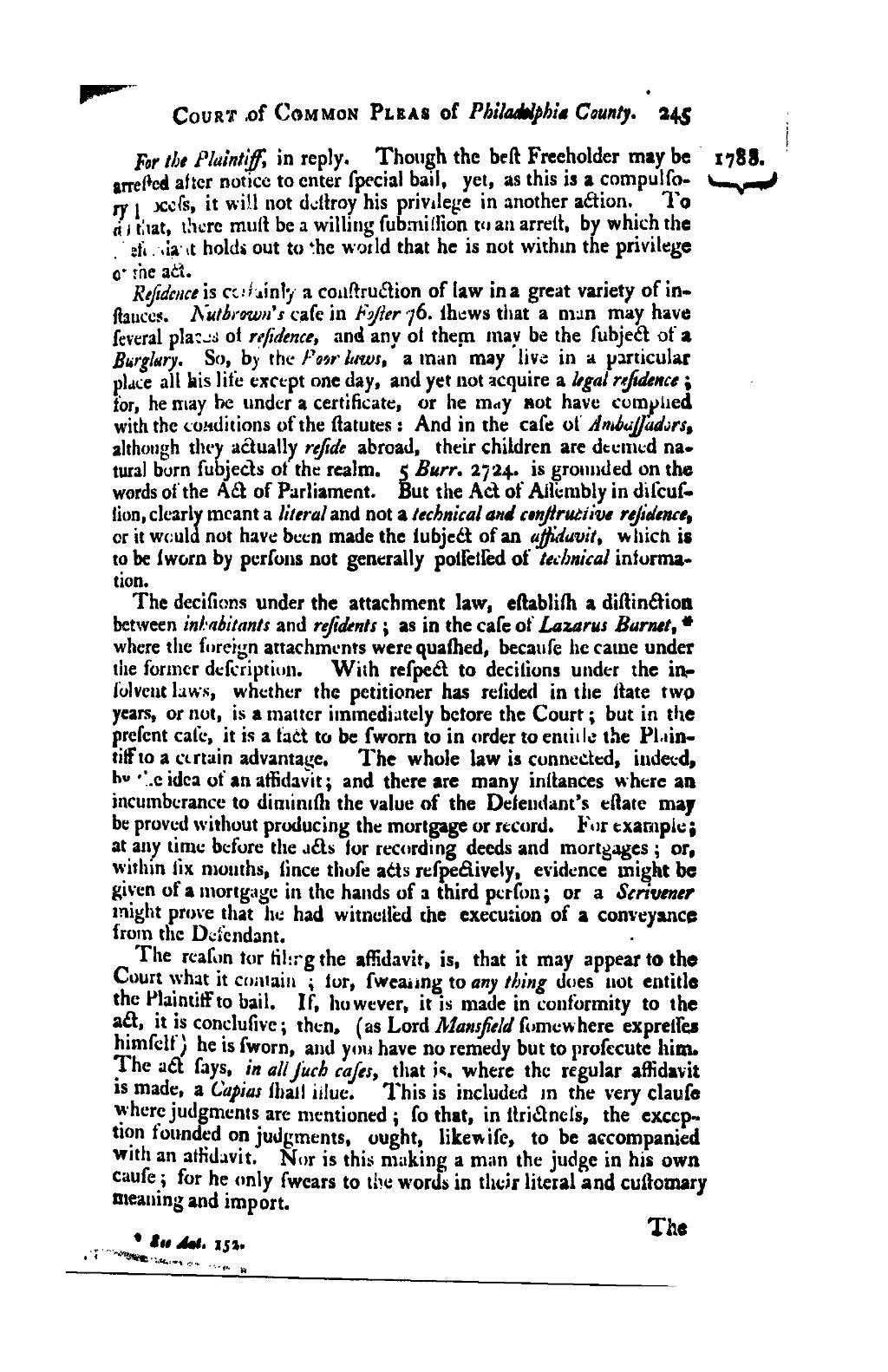For the Plaintiƒƒ, in reply. Though the beft Freeholder may be arrefted after notice to enter fpecial bail, yet, as this is a compulfory (illegible text), it will not deftroy his privilege in another action. To (illegible text), there muft be a willing fubmiffion to an arreft, by which the affidavit holds out to the world that he is not within the privilege of the act.
Reʃidence is certainly a conftruction of law in a great variety of inftances. Nutbrown's cafe in Foʃter 76. fhews that a man may have feveral places of reʃidence, and any of them may be the fubject of a Burglary. So, by the Poor laws, a man may live in a particular place all his life except one day, and yet not acquire a legal reʃidence ; for, he may be under a certificate, or he may not have complied with the conditions of the ftatutes: And in the cafe of Ambaʃʃadors, although they actually reʃide abroad, their children are deemed natural born fubjects of the realm. 5 Burr. 2724. is grounded on the words of the Act of Parliament. But the Act of Affembly in difcuffion, clearly meant a literal and not a technical and conʃtructive reʃience, or it would not have been made the fubject of an aƒƒidavit, which is to be fworn by perfons not generally poffeffed of technical information.
The decifions under the attachment law, eftablifh a diftinction between inhabitants and reʃidents ; as in the cafe of Lazarus Barnet, [♦] where the foreign attachments were quafhed, becaufe he came under the former defcription. With refpect to decifions under the infolvent laws, whether the petitioner has refided in the ftate two years, or not, is a matter immediately before the Court ; but in the prefent cafe, it is a fact to be fworn to in order to entitle the Plaintiff to a certain advantage. The whole law is connected, indeed, by the idea of an affidavit ; and there are many inftances where an incumberance to diminifh the value of the Defendant's eftate may be proved without producing the mortgage or record. For example ; at any time before the acts for recording deed and mortgages ; or, within fix months, fince thofe acts refpectively, evidence might be given of a mortgage in the hands of a third perfon ; or a Serivener might prove that he had witneffed the execution of a conveyance from the Defendant.
The reafon for filing the affidavit, is, that it may appear to the Court what it contain ; for, fwearing to any thing does not entitle the Plaintiff to bail. If, however, it is made in conformity to the act, it is conclufive; then, ( as Lord Mansƒield fomewhere expreffes himfelf) he if fworn, and you have no remedy but to profecute him. The act fays, in all ʃuch caʃes, that is, where the regular affidavit is made, a Capias fhall iffue. This included in the very claufe where judgments are mentioned ; fo that, in ftrictnefs, the exception founded on judgments, ought, likewife, to be accompanied with an affidavit. Nor is this making a man the judge in his own caufe ; for he only fwears to the words in their literal and cuftomary meaning and import.
[♦]See Ant. 252.
